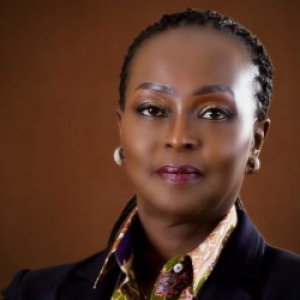Friends, partners from the women’s movement, the many youth networks, allies,
Colleagues from the Diplomatic Community, UN staff, partners.
Good afternoon.
Thank you for joining us today. We are absolutely delighted to see a full house this afternoon and thrilled to mark International Women’s Day today in conjunction with the 55th Session of the Human Rights Council meetings in Geneva. Our observation today also comes just ahead of the 140th session of the Human Rights Committee where gender equality and women’s civil and political rights under the International Covenant on Civil and Political Rights (ICCPR) will be discussed.
We are thrilled that we are able to participate in this International Human Rights Film Tour from Guyana with this showing of “Hidden Letters.” For my part, I am also super thrilled that the room is full – of men and women, spanning the many women’s and youth movements, but also significantly spanning generations. I see people in the room of my age and many who are my son’s age, older, younger. This to me speaks volumes about the inter-generational ownership of women’s rights! Thank you all for coming.
Friends, Ladies and Gentlemen:
Guyana takes its international human rights treaty responsibilities seriously. There is active engagement of the State Party and of Guyana’s many civil society actors with the UN’s human rights architecture. At the end of last year, marking the 75th Anniversary of the Universal Declaration of Human Rights (UDHR), Guyana also joined many other countries in making new pledges for advancing human rights. One of the overarching pledges or human rights promise from Guyana last December was to increase investments in education, health, housing, water and social protection. For me, this national pledge speaks to the interlinkage of Sustainable Development Goals and human rights. It underlines a recognition that investments in education, health and housing are investments in the rights of people, and that Guyana, in making that pledge, acknowledges that great connection between the enjoyment of rights and the many investments that transpire in this fast-paced growing economy.
This pledge is precisely the focus of this year’s IWD theme – to invest; that is, to invest in women to accelerate progress and close the gender gaps.
Sometimes investments through budgets, programs and initiatives may not seem directly relevant to our everyday lives. But it takes investment to give schoolgirls the same opportunities as schoolboys; to provide digital education and develop skills; to build inclusive communities and societies with the full participation of women and girls of all backgrounds. This is the underlying intention of Goal 5 of the Sustainable Development Goals on gender equality and empowerment of women and girls. One of the indicators of this goal is having systems to track and make public allocations for gender equality; to track investments in women.
From increased allocations of national budget resources to ending gender-based violence, including in support of some elements of our recently completed Spotlight Initiative Project funded by the European Union, to screening for cervical cancer to HPV vaccines, everyday there are new investments for women in Guyana. I am heartened by all this and hope that we will be able to showcase from Guyana the best practices of gender responsive budgeting. Afterall, Guyana is where everyone is looking at now!
That is why I think it is very significant that the Head of State, H.E Mohamed Irfan Ali announced last year at the Ministerial Forum on Gender Equality, hosted here by the Minister of Human Services and Social Security, Hon. Vindhya Persaud, that Guyana would meet and likely exceed all SDG 5 targets on gender equality. This level of performance is indeed now within our grasp in Guyana. At the same conference, my UN Women colleagues also shared their gender-responsive budgeting and tracking tools that are being applied across the Caribbean and in Guyana.
Investments are not always just financial. Investments in women can take many forms, from legal frameworks to data and analyses, reporting and engaging mechanisms and strengthening institutions. That is why just last week, I was honored to be part of the work of UNFPA in marking in Guyana the 30th Anniversary of the Program of Action of the International Conference on Population and Development ICPD and the Montevideo Consensus.
Turning to this showing of “Hidden Letters” tonight, allow me to ask you to reflect on how much women have fought for their basic rights. Despite the decades long struggle, sexism, misogyny and patriarchy, like racism and discrimination, pop up, regenerate and replicate themselves in new eras, in new contexts, resulting in everyday backsliding of rights, in everyday affronts to such rights. These attacks underscore that the journey of women’s rights is never complete. They also underscore that women’s organizations and national women’s machineries continue to battle on the front lines. That they continue to need investments, they continue to need collaborative and holistic support. The UN system in Guyana and my many UN colleagues in the room today stand ready to work with you, with Guyana’s women’s movement, its national gender machinery in ministries and in other institutions so that we do not drop the ball for women’s rights as Guyana rises even higher in its development journey.
Thank you for joining us today.
Enjoy the Film.





